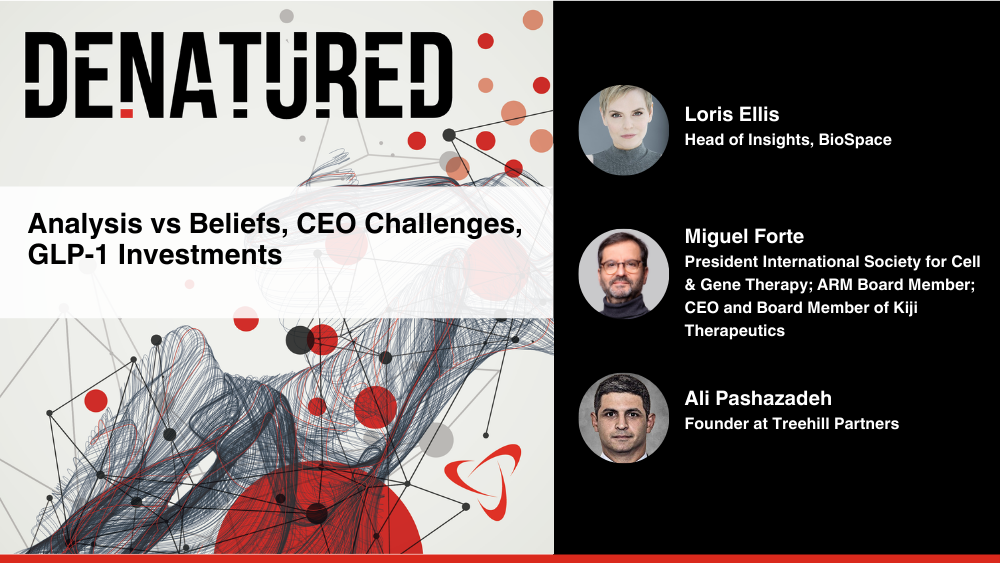OXFORD, United Kingdom, Nov. 17, 2015 (GLOBE NEWSWIRE) -- Summit Therapeutics plc (NASDAQ:SMMT) (AIM:SUMM), the drug discovery and development company advancing therapies for Duchenne muscular dystrophy (“DMD”) and Clostridium difficile infection, announces a multi-year extension of its exclusive strategic alliance with the University of Oxford until November 2019, with an option to extend it for a further 12 months, to support and accelerate development of future generation utrophin modulators for the treatment of the progressive muscle wasting disorder, DMD.
Utrophin modulation is a therapeutic approach that has the potential to slow or even stop the progression of DMD in all patients with this genetic disorder. DMD is caused by the absence of functional dystrophin protein and utrophin is a naturally occurring protein that is functionally similar to dystrophin. Utrophin modulation aims to maintain the production of utrophin to compensate for the missing dystrophin.
“Summit’s strategic alliance with the University of Oxford is an important part of our DMD programme that seeks to discover and develop a strong pipeline of utrophin-based therapies for the treatment of all patients with DMD behind our lead clinical candidate SMT C1100,” commented Glyn Edwards, Chief Executive Officer of Summit. “This is an incredibly exciting time for the field of utrophin modulation with SMT C1100 poised to enter a Phase 2 proof of concept trial and the recent publication of positive preclinical efficacy data on our second generation candidates. The extension of our alliance will allow us to invest further in utrophin modulation in partnership with the world-leading academic research groups at Oxford. This will help to accelerate the development of future generation molecules towards clinical trials, as we seek to maintain our leadership position in this field and potentially allow DMD boys to live longer and more fulfilled lives.”
The strategic alliance is a collaboration between Summit and the research teams of Professor Kay Davies, an internationally acclaimed expert in DMD at the University of Oxford, Professor Stephen Davies, Waynflete Professor of Chemistry at the University of Oxford and a director of Summit, and Professor Angela Russell, an expert in medicinal chemistry and pharmacology at the University of Oxford. To date, the collaboration has identified a number of new series of utrophin modulator compounds that are structurally distinct from the clinical candidate SMT C1100. Work is on-going towards selection of one or more of these differentiated series for progression into lead optimisation studies.
Linda Naylor, Managing Director of Isis Innovation, the University of Oxford’s technology commercialisation company, said, “This is great progress from our committed commercial partners who are applying this important Oxford research with the potential to impact many lives for the better.”
Terms of the Alliance Extension
Under the terms of the alliance extension, Summit retains an exclusive option to arising intellectual property (“IP”) in the field of utrophin modulation generated during the term of the collaboration. Summit will also continue to sponsor a drug discovery and development programme in the University of Oxford research laboratories to identify and develop oral utrophin modulators for the treatment of DMD. This research programme, originally running to November 2016, will now continue until November 2019 with an option to extend it for a further 12 months. As part of the extension, Summit will increase the funding to £0.83 million a year starting in November 2015. Isis Innovation Limited (“Isis”) continues to hold warrants over 354,090 ordinary shares that were granted as part of the original alliance agreement signed in 2013. All the warrants may be exercised by Isis by February 2020, three months after the end of the alliance extension, subject to achieving key research, development and regulatory milestones.
About Utrophin Modulation in DMD
DMD is a progressive muscle wasting disease that affects around 50,000 boys in the developed world. The disease is caused by different genetic faults in the gene that encodes dystrophin, a protein that is essential for the healthy function of all muscles. There is currently no cure for DMD and life expectancy is into the late twenties. Utrophin protein is functionally and structurally similar to dystrophin. In preclinical studies, the continued expression of utrophin has a meaningful, positive effect on muscle integrity and performance. Utrophin modulation has the potential to slow down or even stop the progression of DMD, regardless of the underlying dystrophin mutation. It is also expected that utrophin modulation could potentially be complementary to other therapeutic approaches for DMD. Summit’s most advanced utrophin modulator is the oral small molecule SMT C1100, which it is preparing to enter a Phase 2 proof of concept trial. DMD is an orphan disease, and the US Food and Drug Administration and the European Medicines Agency have granted orphan drug status to SMT C1100. Orphan drugs receive a number of benefits including additional regulatory support and a period of market exclusivity following approval.
About Isis Innovation
Isis is the research and technology commercialisation company of the University of Oxford. It provides access to technology from Oxford researchers through intellectual property licensing, spin-out company formation and material sales, and to academic expertise through Oxford University Consulting. Isis is the highest university patent filer in the UK and is ranked 1st in the UK for university spin-outs, having created over 110 new companies in 25 years. In the last financial year it completed 529 licenses and consulting agreements. Isis Enterprise, its innovation management consultancy, works with university, government and industrial clients from offices around the world.
Isis was named ‘Technology Transfer Unit of the Year 2014' by Global University Venturing and in 2015 Isis Enterprise was awarded a Queens Award for Enterprise (International Trade). For updates on innovations from Oxford, follow Isis on LinkedIn and Twitter or subscribe at www.isis-innovation.com
About Summit Therapeutics
Summit is a biopharmaceutical company focused on the discovery, development and commercialisation of novel medicines for indications for which there are no existing or only inadequate therapies. Summit is conducting clinical programs focused on the genetic disease DMD and the infectious disease Clostridium difficile infection. Further information is available at www.summitplc.com and Summit can be followed on Twitter (@summitplc).
For more information, please contact:
| Summit | |
| Glyn Edwards / Richard Pye (UK office) | Tel: +44 (0)1235 443 951 |
| Erik Ostrowski / Michelle Avery (US office) | +1 617 225 4455 |
| Cairn Financial Advisers LLP | |
| (Nominated Adviser) | |
| Liam Murray / Tony Rawlinson | Tel: +44 (0)20 77148 7900 |
| N+1 Singer | |
| (Broker) | |
| Aubrey Powell / Jen Boorer | Tel: +44 (0)20 7496 3000 |
| Peckwater PR | |
| (Financial public relations, UK) | Tel: +44 (0)7879 458 364 |
| Tarquin Edwards | tarquin.edwards@peckwaterpr.co.uk |
| MacDougall Biomedical Communications | |
| (US media contact) | Tel: +1 781 235 3060 |
| Chris Erdman | cerdman@macbiocom.com |
Forward-looking Statements
Any statements in this press release about Summit’s future expectations, plans and prospects, including but not limited to, statements about the clinical and preclinical development of Summit’s product candidates, the therapeutic potential of Summit’s product candidates, and the timing of initiation, completion and availability of data from clinical trials, and other statements containing the words “anticipate,” “believe,” “continue,” “could,” “estimate,” “expect,” “intend,” “may,” “plan,” “potential,” “predict,” “project,” “should,” “target,” “would,” and similar expressions, constitute forward looking statements within the meaning of The Private Securities Litigation Reform Act of 1995. Actual results may differ materially from those indicated by such forward-looking statements as a result of various important factors, including: the uncertainties inherent in the initiation of future clinical trials, availability and timing of data from on-going and future clinical trials and the results of such trials, whether preliminary results from a clinical trial will be predictive of the final results of that trial or whether results of early clinical trials or preclinical studies will be indicative of the results of later clinical trials, expectations for regulatory approvals, availability of funding sufficient for Summit’s foreseeable and unforeseeable operating expenses and capital expenditure requirements and other factors discussed in the “Risk Factors” section of filings that Summit makes with the Securities and Exchange Commission including Summit’s Annual Report on Form 20-F for the fiscal year ended January 31, 2015. Accordingly readers should not place undue reliance on forward looking statements or information. In addition, any forward looking statements included in this press release represent Summit’s views only as of the date of this release and should not be relied upon as representing Summit’s views as of any subsequent date. Summit specifically disclaims any obligation to update any forward-looking statements included in this press release.
-END-
Help employers find you! Check out all the jobs and post your resume.




